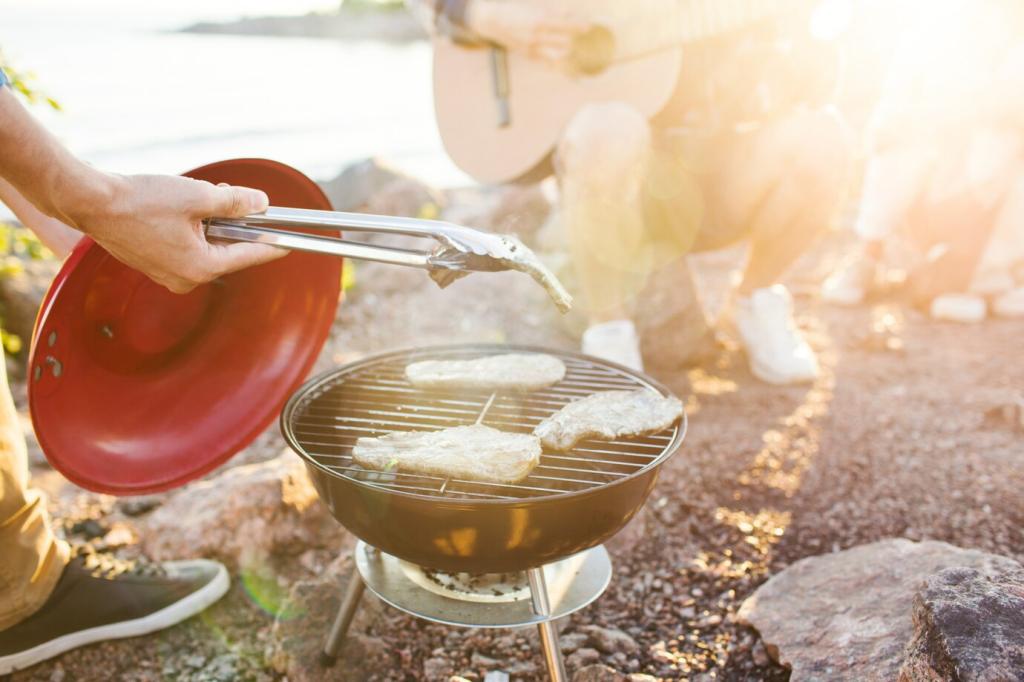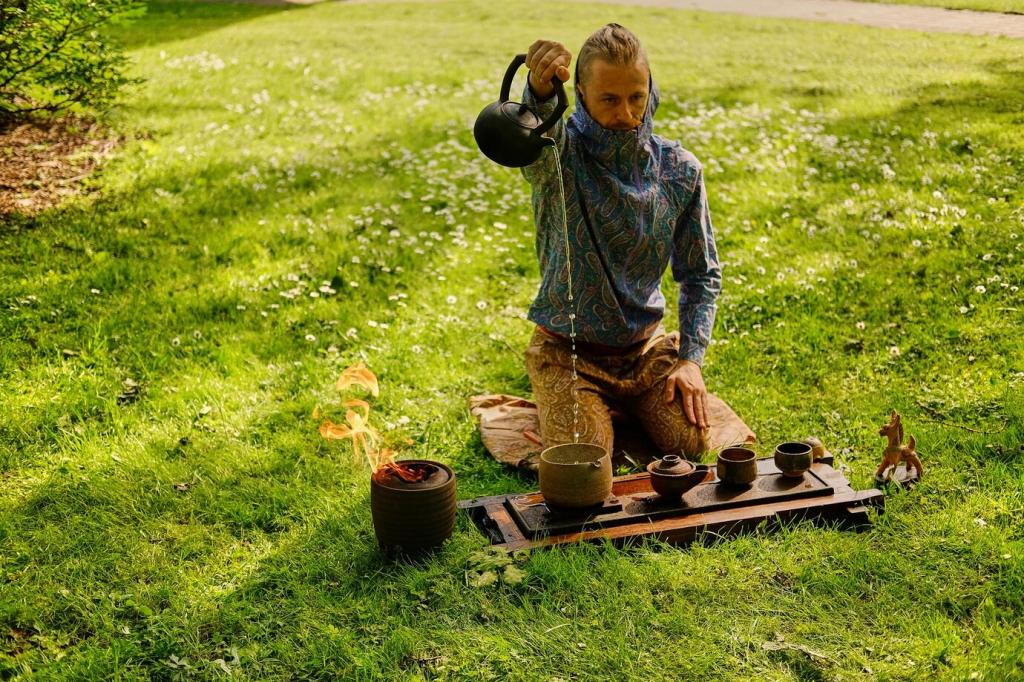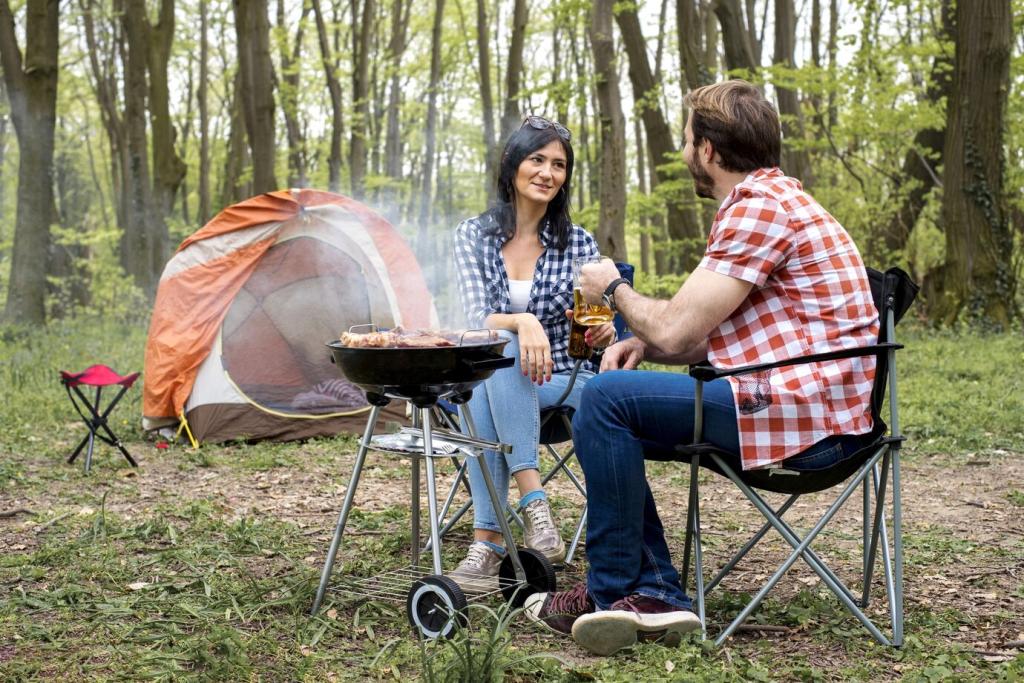
Charcoal vs Gas Grilling: The Sizzle Showdown
Chosen theme: Charcoal vs Gas Grilling. Fire up your appetite as we compare smoke-kissed tradition with button-start convenience, sharing stories, science, and tips you can use tonight. Join the conversation, tell us your preference in the comments, and subscribe for more backyard wisdom.

Heat Control and Consistency
01
Gas ignites with a twist and steadies quickly, perfect for fast dinners or storm-dodging cooks. Charcoal needs chimney time, yet rewards patience with roaring heat potential. Plan your rhythm: light early, prep ingredients with purpose, and you will never feel rushed at the grate, even on busy evenings.
02
Charcoal excels at multi-zone cooking by banking coals for sear and safety zones, controlled with precise bottom and top vent adjustments. Gas mimics zones with burner knobs, delivering repeatable settings. Try a biscuit or toast test to map heat patterns, then adjust placements until your grill behaves predictably.
03
Wind drinks heat from both grills, but charcoal can surge when gusts stoke embers. Gas holds steadier yet benefits from a windbreak and lid discipline. Keep lids closed, use reliable thermometers, and log your cooks; patterns emerge, confidence grows, and your steaks thank you with consistent doneness.


Convenience, Ritual, and Cleanup
When time is short, gas feels like an outdoor stovetop: instant ignition, fast preheat, and tight control for vegetables, seafood, and thin cuts. It encourages more spontaneous grilling, which often means you cook more often, learn faster, and keep weeknights delicious without stress or complicated prep routines.
Convenience, Ritual, and Cleanup
Charcoal invites a satisfying setup: chimney whoosh, glowing embers, and the quiet joy of building a fire. That ritual resets a busy mind. Consider it cooking plus meditation, where the payoff is a blistered crust and a story worth retelling. Tell us your pre-grill ritual, and inspire another griller.
Cost, Fuel, and Ongoing Care
A propane tank powers many sessions with consistent heat, while charcoal consumption varies with grill size, venting, and cook length. Lump burns hotter and faster; briquettes hold steadier. Track your sessions and weigh leftover fuel occasionally to find your sweet spot and reduce unnecessary refills or purchases.
Cost, Fuel, and Ongoing Care
Gas grills appreciate burner checks, leak tests, and clean ports for even flames. Charcoal thrives on grate care, rust prevention, and dry storage for fuel. A sturdy cover, a good brush, and a small parts kit extend lifespan dramatically and keep performance crisp season after season.


Health and Safety on the Grill
Charcoal smoke carries character but can deposit more particulates, while gas runs cleaner. Avoid excessive charring that forms unwanted compounds by trimming fat, managing flare-ups, and flipping away from direct flames. Smart marinades and moderate temperatures deliver flavor without unnecessary smoke or bitter, overdone edges.
Health and Safety on the Grill
Operate grills outdoors with generous clearance from structures and overhangs. Keep a spray bottle for flare-ups and an extinguisher nearby. Gas owners should check connections with soapy water; charcoal cooks should respect ash disposal. A simple timer and thermometer prevent distractions, flare-ups, and sadly overcooked dinners.


Environment and Sustainability
Footprint and fuel choices
Gas generally emits fewer pollutants at the point of use, while charcoal’s smoke and production can carry a higher footprint. If choosing charcoal, look for responsibly sourced lump or cleaner briquettes. Either way, right-sizing cooks and avoiding idle preheats reduces emissions without sacrificing great flavor.


Sourcing, reuse, and thrift
Repurpose partially burned charcoal for shorter cooks, and store fuel dry to prevent waste. Seek local hardwood lump from sustainable producers when possible. For gas, maintain tanks and seals to avoid leaks. Donate usable equipment, and recycle metal components rather than sending them to a landfill unnecessarily.
